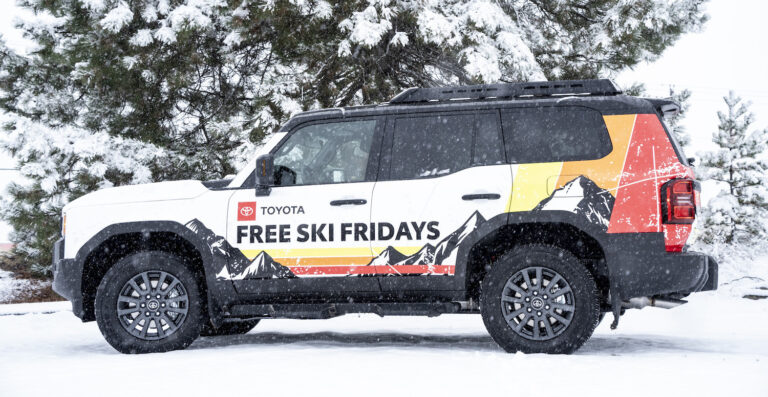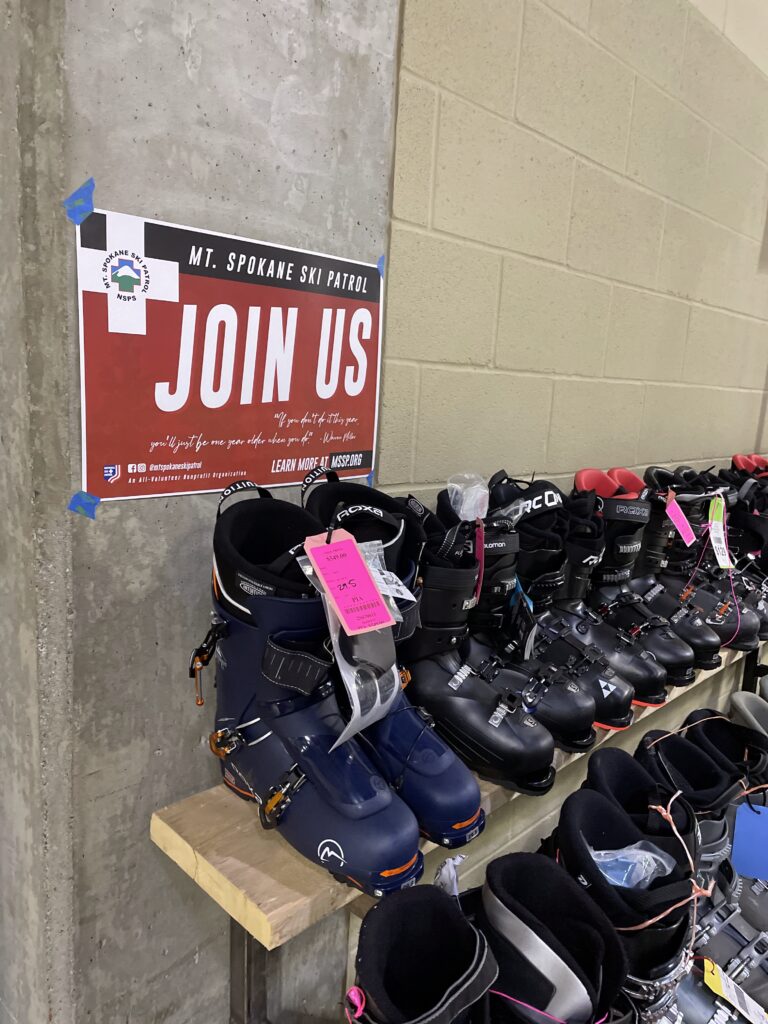Ubuntu Fly Anglers create space for people of color in the outdoors
By Dr. Robert L. “Bob” Bartlett
Cover photo courtesy of Heather Hodson
I’ve been a ‘lone’ black fly angler in pursuit of wild fish in some pretty wild places—but I’ve never been lonely. So, it’s hard to describe feeling lonely in tame spaces like full board rooms, as a member of a fly-fishing organization, or when attending conservation events. I have spent several decades being the only black or brown person, doing what I love to do where I love to do it. Now in my mid-70s, I began focusing my energy on casting for a family of fly anglers who look like me in order to combat the frequent loneliness.
My search led to the 2023 creation of a nonprofit, the Ubuntu Fly Anglers Network. We are a group of black and brown fly anglers and environmental activists from across the country and Canada, founded in the Spokane Valley.
Over my 50-plus years as an outdoorsman and fly angler in the American West, I never met another black or brown person streamside, on a mountain trail, or as a member of a local environmental group. There are both economic and racial barriers as to why that is so. Like any hobby or passion, fly-fishing gear can be spendy and fly anglers are overwhelmingly white, particularly in the West and Pacific Northwest. Out here, they fish overwhelmingly white places and belong to overwhelmingly white environmental organizations.
Demographers have long predicted that non-Hispanic whites will be the minority in this country by 2045. Who among this predicted black and brown majority are going to be fly anglers, river warriors and environmental activists? It is important that people who look like them reach them and teach them to claim their place in green spaces. Ubuntu Fly Anglers are committed to providing safe spaces for them to gather and learn and to help provide opportunities for them in our natural world.
We know from our lived experiences how hard it is to become what you do not see. We also know how important it is to be in “right relations” with nature and to protect it. These two things drive our why.
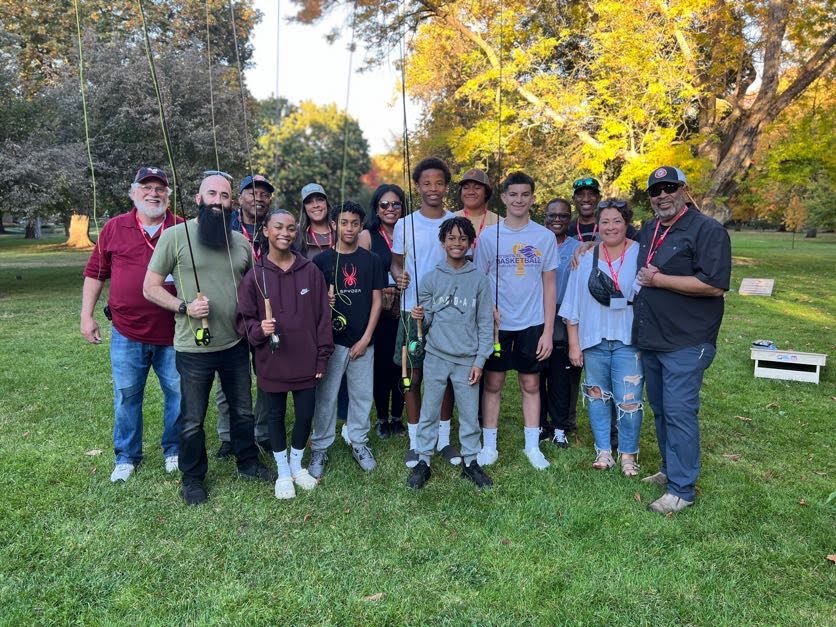
Finding the Fly
I was sixteen when The American Sportsman TV show hosted by Joe Foss and later Curt Gowdy debuted on ABC. Gowdy and his guests fly-fished big western rivers and they always caught lots of big fish, mostly trout. My dad and I rarely missed the show.
Gowdy and his guests cast flies that fooled fish. I’m almost certain we never saw a black person on the show. However, my Pops didn’t see fly fishing as a “white only thing.” He just wanted to fish their way, and we had local fish to fool. If they could fool trout with a fly, so could he.
Pops taught himself, then me, everything he knew about fly-fishing, which wasn’t much. Catching and releasing fish caught in the lip extended the experience for the two of us. Usually, we did not hunt or fish for sport. Fishing with a fly rod felt sporty and we loved it.
Growing up as a member of a small black rural community back east formed me and shaped the cultural lens through which I see and interpret the world and my place in it. I spent a lot of time alone on my local water and in the surrounding mountains, but I was never lonely. I had a family and a community to return to.
I never imagined that someday I would settle in the Pacific Northwest. An Army snafu in orders sent me to Colorado after over a year tour of duty in Vietnam in 1972. At first, I was upset at not being assigned closer to home, but I soon fell in love with the vastness of the West. I began fly fishing premium Colorado trout streams not yet “found.” It would be 20 years before the movie “A River Runs Through It” would bring the crowds to Western trout streams. I also hunted big game there with bow and gun and hunted birds and ducks. Graduate school eventually brought me and my young family to Washington State in the early 80’s, and we have been here ever since.
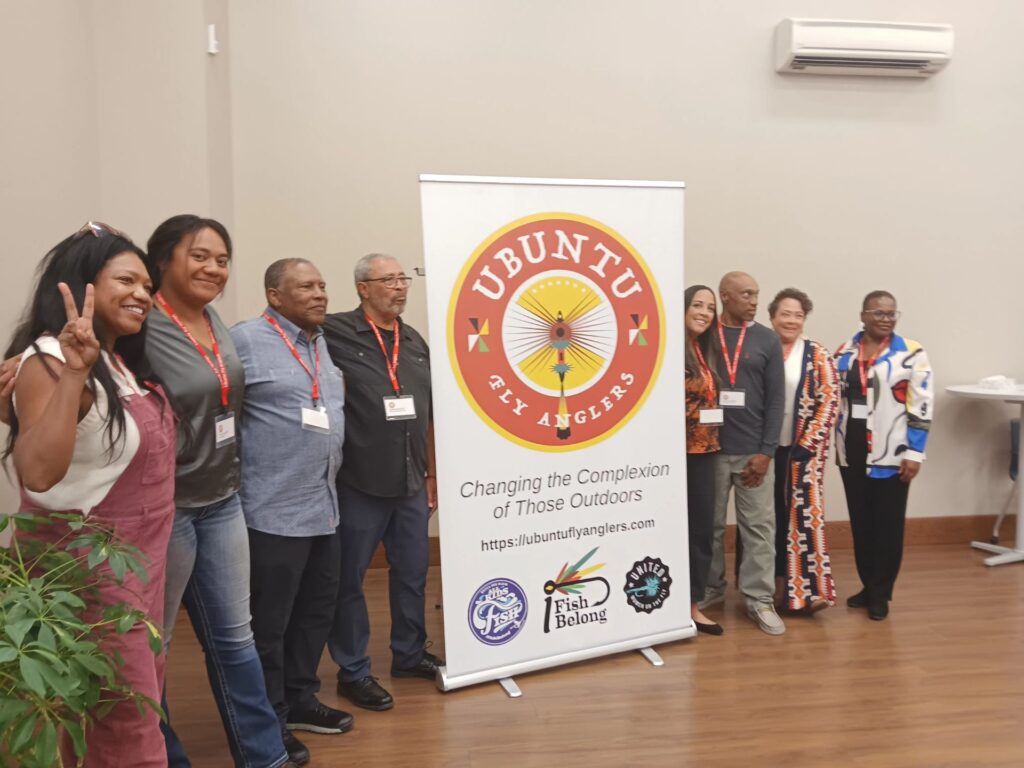
Casting for Family
Forty years later, in early spring 2023, I gave a presentation via Zoom, hosted by another Spokane angler Heather Hodson titled “Fly-fishing through mid-life and beyond.” There was one black person in attendance—a life resident of Los Angeles, California. At the end of the presentation, we promised to connect, and we did. We came to the conclusion that surely there are other black and brown fly anglers out there and we agreed to be intentional in finding them.
We soon started connecting with others like us through social media. Not surprisingly, there were and are others who were also looking for safe, familial company and a sense of belonging. We shared similar stories of what being the only one like us feels like in the places we fish, and in the organizations we belong to.
By summer of 2023, the Ubuntu Fly Anglers Network was officially founded by me and that lone black person in Los Angeles that I met during the Zoom presentation, Carl Crawford. We agreed to embrace the values and practices of Ubuntu.
Ubuntu is a set of cultural understanding, values and practices that comes from the South African Bantu people. Ubuntu acknowledges that we are part of a larger and more significant communal, environmental, and spiritual world. There is a sincere warmth with which people treat others, both strangers and members of their community. It is a philosophy that values collectivism over individualism, as in, “I am because we are.”
After a year of planning and fundraising, nine of us agreed to gather in Spokane for four days in mid-October. We shared living space, ate meals together, floated and fished the Spokane River and caught wild native redband trout. We hosted a catered dinner for 45-50 donors and friends and did some strategic planning. We also spent some quality time in a local city park, where we put fly rods in the hands of some black and brown kids.
That time together from Ubuntu’s first gathering was so affirming. We stayed up late, played board games and laughed until our sides ached. It was as if we had known one another for years and not hours—and maybe we had. It is gratifying to learn that I am not the only one who feels alone in a crowd.
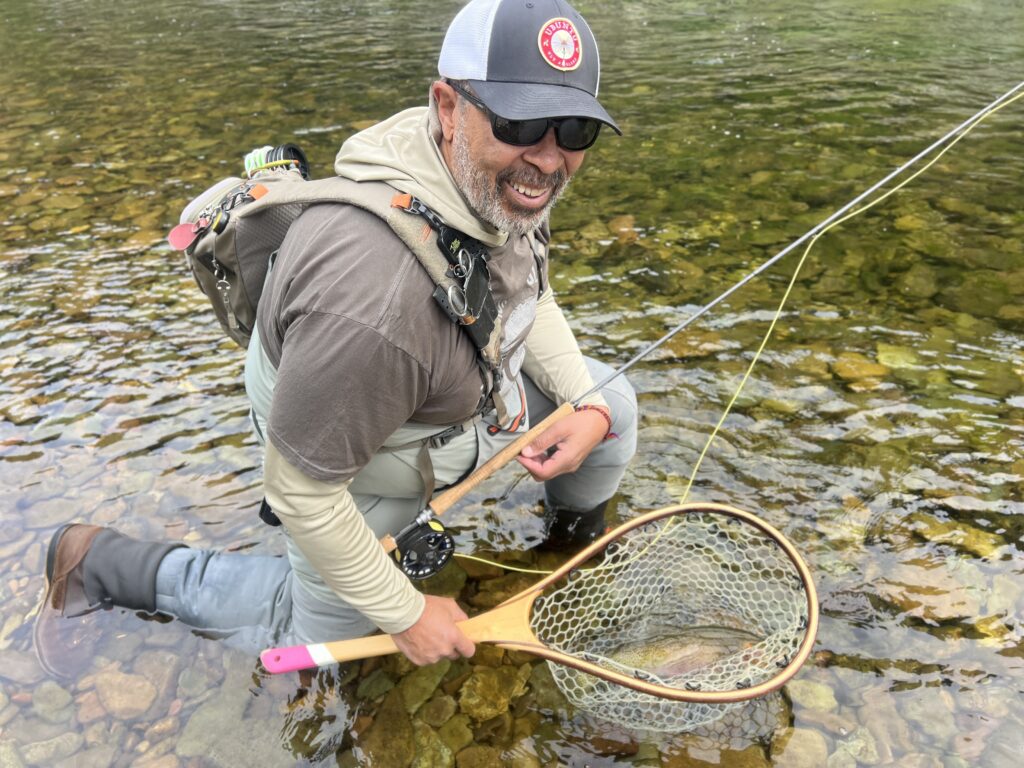
Expanding the Net
I still miss the mountains and rivers of my youth, especially in the fall. However, what I have missed most is the everyday company of black and brown faces in green spaces, pursuing wild fish. I long to see more of us in boardrooms, at large fly angling gatherings, and I long to read their stories featured in print.
This new Ubuntu family has already made such a positive difference in the lives of others and in the industry. Ubuntu hosts and offers free, virtual fly-fishing educational programs. We host a podcast series, called “On the REAL,” where we interview other black and brown anglers and activists from across the country and Canada. We also provide in-person, free fly-fishing clinics and outdoor experiences for black and brown youth.
The gathering last year was a first for Spokane. We decided to create our own space in this outdoor industry that is overwhelmingly white. We are intentional in our outreach to black and brown youth, professional and hobby fly anglers and business owners everywhere, and we continue to grow. Our sharing of resources and educational offerings will remain free. We depend solely on donations from our allies, corporate sponsors and grants.
If you self-identify as a black or brown angler or environmental activist and would like to join our network, please reach out to me. We are committed to keep casting for others like us, using a slightly modified 10-2 rhythm.
Dr. Robert L. “Bob” Bartlett retired from Gonzaga University in 2007 and Eastern Washington University in 2020. He is a storyteller, published author, fly-fishing instructor, life member of Trout Unlimited, a passionate fly angler and co-founder of the Ubuntu Fly Anglers Network. He has served on the board of directors of the Spokane Riverkeeper and writes a monthly column for “The Black Lens.” He can be reached at [email protected]. You can follow the Ubuntu Fly Anglers Network on Instagram @ubuntuflyanglers and on Facebook @ubuntuflyanglers.com.











